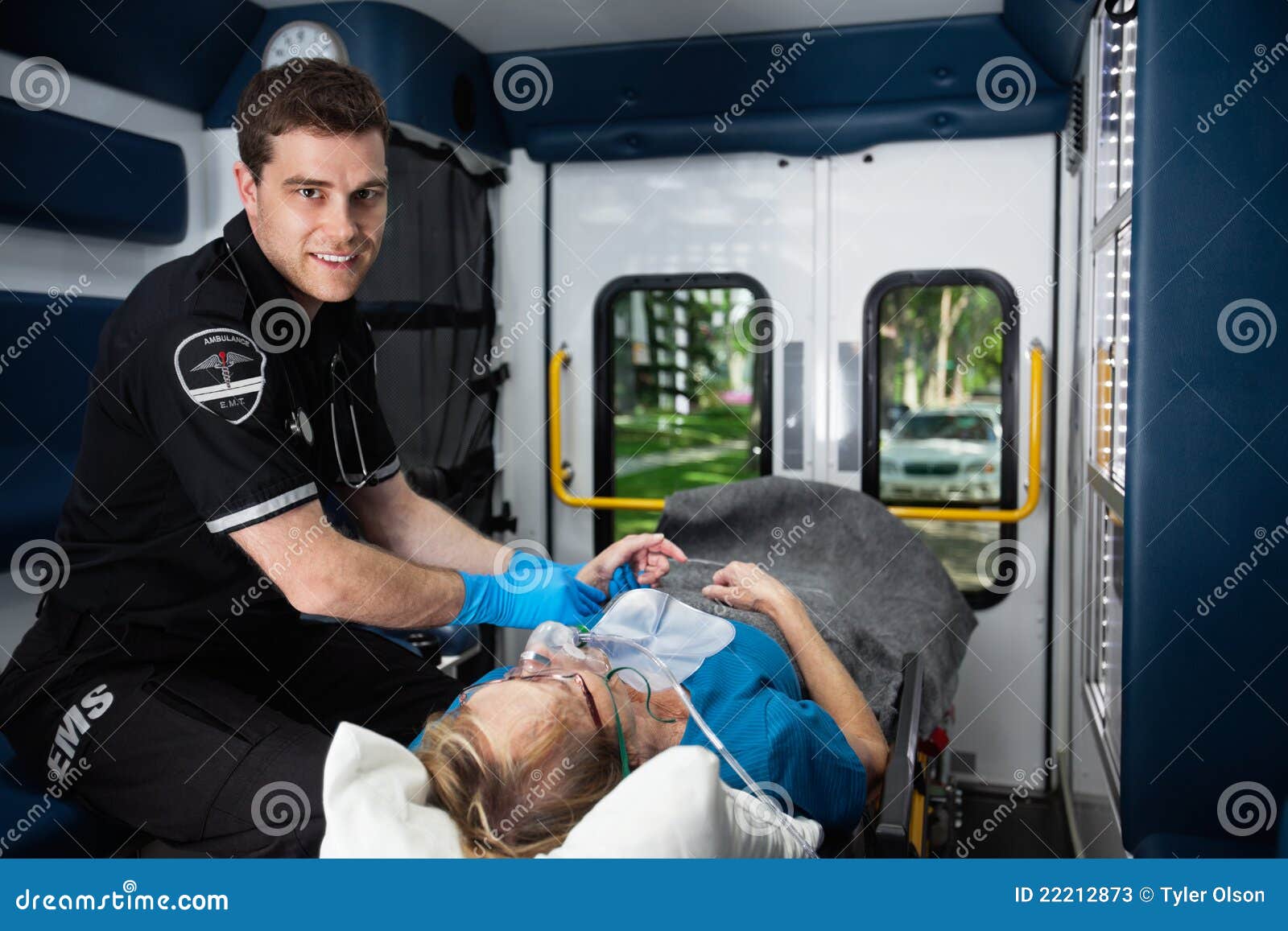- Joined
- Jul 23, 2012
- Messages
- 2,781
- Reaction score
- 2,489
There are only two kinds of successful pre-meds:
1. Those that make into medical school.
2. Those that drop the pre-med track soon enough to embark on a new path and become successful.
There is NOTHING in between, and there is no consolation prize waiting for you if you don't have that acceptance in hand. All of those volunteer hours, the entry-level clinical job that you don't need a college degree to do, what do they mean when it's all over?
They are an inconvenient truth that awaits all too many pre-meds. On SDN, you have people post in this forum when they are pre-meds. Some make it into medical school, and some do not. Usually when someone decides to drop the pre-med track, they will stop posting on SDN. There isn't going to be a goodbye post, why should there be? No one is going to continue posting here if they aren't going to medical school. All you see is silence.
In that silence we fail to see what lead up to that failure, and that's the problem. Let me explain.
*"Pre-Med" is a real-life RPG with real-life consequences*
Here's a little about me. I took the non-traditional path to medical school. I came from Northwestern University (Go Cats!). I majored in economics. I had dreams of becoming an investment banker, but given the fact I wasn't at an Ivy League school, there weren't too many banks recruiting on campus like let's say Harvard, Columbia, Princeton, and etc. I ended up getting a job in revenue management in one of the country's largest airlines, and worked there for a year. At that point I found my work incredibly unfulfilling, and wanted something more. I quit, did a post-bacc, then joined another airline in case I would need an additional gap year, but made it. Now I'm a resident. During that journey in undergrad, I focused on getting a business career, and had a "general" focus toward that goal. I shot high, for investment banking, the ultimate goal of just about everyone doing economics or business at universities across this great nation. Like most, I landed short of my goal, no pun intended. But that's okay, because even though my job kind of sucked, it paid decently and lots of people started there and worked their whole lives in revenue management as a career-track. So at no point did I feel underemployed.

My job wasn't great, I wasn't all too happy, but my at least life didn't end up like the "Death Cruiser 10"
My brother-in-law's girlfriend decided she wanted to go to law school. She majored in liberal arts stuff in college, and then decided to study for the LSAT. She has been working a 9-5 job and has been studying for the LSAT. She plans on taking it soon. I knew a few other people that went to law school as well. Some studied for the LSAT during undergrad, and some did later on shortly after graduating. A couple people worked as law-clerks over the summer or part-time, and some didn't.
The majority of people that I knew from Northwestern ended up in business careers, ranging from consulting down toward specific analyst positions at a variety of different companies. I didn't actually know anyone that made it into investment banking, but as for the people I keep in touch with, they are pretty happy with their lives. None of them consider themselves underemployed. Most are married with kids.
I'm sure at this point you are getting a little bit confused. You are just about ready to report my post for being off-topic. What do these business people or law students have to do with getting into medical school?!
Well, I'm here to make a point. When I mentioned people going to law school, I never referred to them as "pre-law." There really isn't such a thing when you ask people. It seems like most end up taking time to study for the LSAT or GRE, and then roll the dice with admissions. When I mentioned people going into the business world, I referred to them aiming high with investment banking, but landing somewhere short of that goal. But, none of these people consider themselves underemployed, and appear content with their lives, at least from Facebook.
This brings me to "pre-med," which is a term thrown around by lots of people at colleges all across this country. Let me define what a pre-med actually is for you.
A pre-med is someone that is trying to get into medical school. A pre-med must take the prerequisite science courses, take the MCAT, have some clinical experience (NOT SPECIFIC SKILL SETS), as well as satisfy the unwritten rule of volunteering.
Let me repeat that for you...
A pre-med is someone that is trying to get into medical school. A pre-med must take the prerequisite science courses, take the MCAT, have some clinical experience (NOT SPECIFIC SKILL SETS), as well as satisfy the unwritten rule of volunteering.
It's actually pretty simple. A lot of people can satisfy these things fairly easily. You pick a non-science related major, let's say economics. You throw in biology, chemistry, physics, and organic chemistry into the mix. You volunteer once per week in a hospital emergency department for four hours per week, and get at least 50 hours shadowing a few physicians over three years or so. Then you take the MCAT, you apply to medical school... And... You get in! It's that simple, right? Well it can be, but unfortunately it doesn't end up way for many.
The "pre-med" track has somehow turned itself into an RPG. But there's a downside. People are going off onto numerous side-quests. These quests become too convoluted, often taking people far off the path, and sometimes leading to game over. These quests will have minimal to no bearing on your life once you actually become a medical student. But unlike playing today's games where you just continue from your last save point, real life is more like playing an old school arcade game. You die or fail, and you need to insert more coins for credit. If you're out of coins, well then, it's all over for you.

Unfortunately real life isn't a game
*Final Fantasy 7*
Final Fantasy 7 was released in 1994 for Playstation. It is one of the greatest games ever created. I have played it through many times, more recently on my PC with an emulator.

The original box art for the game
Here's what happens in the game. You are trying to save the world because it's being drained of its natural resources by an evil corporation. Later you are actually fighting against a super powerful dude that was created by them and trying to destroy the world with a giant meteor. Okay, that sums it up in two sentences.
So you can either coast through the game with no side-quests and all that good stuff, and defeat the enemy, Sephiroth at around level ~40. Or... You can do numerous side quests that will take you days, if not weeks, to complete! You can max everything out at level 99, breed the ultimate Gold Chocobo, get Knights of the Round materia replicated multiple times, and defeat enemies that are far more powerful than the final boss, Sephiroth, who is much easier when doing simple linear game play. In fact, defeating Ruby Weapon was one of the hardest things I have ever done in terms of my childhood, and would still prove a daunting task for many people.

I'm not sure what's harder... Ruby Weapon or Step 1?
So what does this have to do with pre-meds? What I'm getting at is that pre-meds these days are straying far away from the linear path of getting into medical school. They are suddenly going off on numerous side quests so that they can level up their volunteering or "clinical skills" (most of which have absolutely nothing to do with being a doctor) to super duper high levels! By attempting this non-linear path, they usually have to throw all of their eggs in one basket. But what happens when you get defeated by the enemy? The screen goes black, the gloomy sad music starts, and you can press continue. You can then pick up from your last save point. Well, that's in terms of Final Fantasy 7. But what happens in real life when you get defeated and had all of your eggs in one basket? Often it isn't a just a simple set-back, where you start at an earlier save point. Often times it has catastrophic consequences that will affect THE REST OF YOUR LIFE. Also, given the fact that people drop the pre-med process almost instantly when things get bad, you won't hear about what happened on SDN (assuming they are members). They aren't going to write a post detailing the mistakes they made and what they wish they could have done instead. The accounts just go silent.
*Learning from Others' Mistakes*

Something to live by
The purpose of this long post is so that you can learn from the mistakes that others have made, as well as myself. In a high-stakes environment where people put everything on the line, you definitely do not want to make mistakes yourself. Also given the quick nature of falling off the path, you usually don't hear about what went wrong on SDN. So let's take some time looking through the pre-med process and where people make mistakes, and what can be done to make it better.
As I wrote above, there are only two types of successful pre-meds:
1. Those that make into medical school.
2. Those that drop the pre-med track soon enough to embark on a new path and become successful.
The first group of people are not those that I worry about. They do well in college, properly balance both the written and unwritten requirements, and get in. Sometimes they take a gap year, but there are no major flaws in their applications that would prevent them from getting into medical school. They are not the focus of this post.
Let's focus on the latter for just a little bit. These are often the people that declare themselves pre-med when they start college. They may have a science-based major, or they may not. Either way, they start their freshman-level core course, and find themselves getting their ass kicked by the end of first semester. They realize the journey to medical school is harder than they expect. They decide not to pursue it. They either drop the class or re-register for something else in the future. They switch to a non-science major if they were previously doing something like biology. They end up on whatever other path that has nothing to do with medical school, and that's the end of that. I've met people in successful business positions that told me they were "pre-med" at some point in college. 95% will never think about or try applying to medical school ever again (5% may become non-traditional applicants down the line, and that is not the focus of this post). You may or may not have seen them on SDN. They may have made a post or two, or lurked, but often will be done with SDN quickly and abruptly. I consider these to be the other SUCCESSFUL pre-meds because they were able to get out long before any permanent damage could be done. They were able to embark on another path and find great success in life not involving medical school.
Now let's look at the people in the focus of this post. The ones that not only did not get into medical school, but also those that were too far gone or invested into the process that the rest of their lives were affected.
*Meet Brian*

Meet Brian, he's a pretty nice guy. I met him in my general biology during my post-bacc. He was a freshman at the time, and was his first science class. I sat next to him in class, and we became friendly. He was a biology major, and had aspirations to work as a cardio thoracic surgeon. Today he works an EMT (he did not work as an EMT during undergrad). Brian was for most part following the linear path of what most pre-meds do. He was a biology major, started volunteering once weekly in a hospital, and was studying. Unfortunately for him, biology started off kind of rough. He ended up with a D in the class, and was relieved that he passed. At this point of the game (or even earlier), lots of college students would call it quits with pre-med. They would pick up other majors, and move on with their lives. Brian continued with the pre-med courses, volunteering, and shadowed some physicians along the way. He took the MCAT (never told me his score), but I'm assuming his grades didn't allow him to get in. During his senior year, he became a research assistant and then became an EMT after graduation. To this day, he is an EMT and not in medical school.
Misstep Lesson #1: Knowing When to Quit
When Brian got a D in biology (arguably the easiest of the basic sciences), this should have served as a red flag for him. At this point, or even earlier, the majority of "pre-meds" will call it quits and pick a different path. If they are science majors, they will switch to something else. For those that switch to business, for example, you may not become an investment banker with that crappy grade, but you can still get a pretty good position elsewhere for a stable career-track. Brian didn't overdo any side quests, or even take any for that matter, he just couldn't handle the academics. The material in medical school isn't hard per se, it's the VOLUME and speed that is killer. If you can't handle general biology, you shouldn't proceed further to medical school. I'm not trying to be rude. The ultimate class that acts as the great weed-out in the pre-med process is organic chemistry. At that point, people get weeded out and quit. Unfortunately, that is sometimes a little late for people, and they find themselves stuck in basic science majors that can't land them decent jobs once they graduate. The luckier ones can change things around and not find themselves underemployed. Brian worked as a research assistant and now works as an EMT. Neither of these will make up for him poor academic performance in college.
The takeaway message: Knowing when to quit is important. The further you linger in the pre-med process, the more doors you shut on reasonable future careers. If you get your ass absolutely handed to you in your first science class and you can't seem to handle the material, get out now! In fact, you should have gotten out yesterday.
*Meet Dave*

Meet Dave, he's kind of an outspoken jerk that is arrogant and likes to talk crap behind a lot of peoples' backs. But that's okay because he had both clinical and non-clinical volunteering during his undergraduate years, which put him on track toward becoming the Second Coming of Mother Teresa. His grades during undergrad were mediocre, and for whatever reason, he ended up talking as many courses as he could that centered around the neurosciences. He found research opportunities later on that centered around this very same topic. He kind of overdid it with some difficult college courses and did a little too much research, which ended up ruining his MCAT score. Nonetheless, he was incredibly proud of this accomplishment. He got an LOR from the department chair, saying that had there been a neuroscience major, Dave would have completed it. He was very proud of this fact, and saw it as a badge of awesomeness that would land him a highly coveted spot in medical school. He continued to do research once he graduated, but never ended up getting into medical school. He continues to do research to this day, and is still the same jerk he was when he started undergrad.
Misstep Lesson #2: Keep Your Major and Path Simple and Practical
It seems that most pre-meds end up picking a science-based major. I'm not sure why, they just do. The largest number seem to go into biology, and then there are others that do chemistry or physics. Some get a little more adventurous and major in something likely microbiology, neuroscience, or Your Mother-ology. Regardless of what they actually major in, they all have the goal of going to medical school and becoming a physician. I have yet to meet anyone from my previous medical school class or colleagues from residency that wishes they were working as biologists instead of doctors. Yes, there are people that plan on pursuing these science careers, but unlike pre-meds, they don't land on these careers as a fallback. What's the other difference? A biology major that is intent on working as a biologist or some other position in the field would likely have had good grades and work experiences to land a good job. How about the failed pre-med biology major? They probably had crappy grades and lacked work experiences that would have helped them land a decent job. Sure, they might look like the Second Coming of Mother Teresa with all of that volunteering, but I don't think the employers would care. People like Brian and Dave ended up underemployed, despite their bachelor degrees in biology.
Medical schools DO NOT care what major you are. Fancy stuff will not really impress them more. A higher GPA, MCAT, and fluff is what will impress them. If you pick something more practical like a business degree but your pre-med prerequisite grades suck, you can still have a good shot at landing a decent CAREER, and won't find yourself underemployed.
Please read this for more information regarding choosing majors and a path: Planes2Doc's Ultimate Guide to Maximizing Your Medical School Application
1. Those that make into medical school.
2. Those that drop the pre-med track soon enough to embark on a new path and become successful.
There is NOTHING in between, and there is no consolation prize waiting for you if you don't have that acceptance in hand. All of those volunteer hours, the entry-level clinical job that you don't need a college degree to do, what do they mean when it's all over?
They are an inconvenient truth that awaits all too many pre-meds. On SDN, you have people post in this forum when they are pre-meds. Some make it into medical school, and some do not. Usually when someone decides to drop the pre-med track, they will stop posting on SDN. There isn't going to be a goodbye post, why should there be? No one is going to continue posting here if they aren't going to medical school. All you see is silence.
In that silence we fail to see what lead up to that failure, and that's the problem. Let me explain.
*"Pre-Med" is a real-life RPG with real-life consequences*
Here's a little about me. I took the non-traditional path to medical school. I came from Northwestern University (Go Cats!). I majored in economics. I had dreams of becoming an investment banker, but given the fact I wasn't at an Ivy League school, there weren't too many banks recruiting on campus like let's say Harvard, Columbia, Princeton, and etc. I ended up getting a job in revenue management in one of the country's largest airlines, and worked there for a year. At that point I found my work incredibly unfulfilling, and wanted something more. I quit, did a post-bacc, then joined another airline in case I would need an additional gap year, but made it. Now I'm a resident. During that journey in undergrad, I focused on getting a business career, and had a "general" focus toward that goal. I shot high, for investment banking, the ultimate goal of just about everyone doing economics or business at universities across this great nation. Like most, I landed short of my goal, no pun intended. But that's okay, because even though my job kind of sucked, it paid decently and lots of people started there and worked their whole lives in revenue management as a career-track. So at no point did I feel underemployed.

My job wasn't great, I wasn't all too happy, but my at least life didn't end up like the "Death Cruiser 10"
My brother-in-law's girlfriend decided she wanted to go to law school. She majored in liberal arts stuff in college, and then decided to study for the LSAT. She has been working a 9-5 job and has been studying for the LSAT. She plans on taking it soon. I knew a few other people that went to law school as well. Some studied for the LSAT during undergrad, and some did later on shortly after graduating. A couple people worked as law-clerks over the summer or part-time, and some didn't.
The majority of people that I knew from Northwestern ended up in business careers, ranging from consulting down toward specific analyst positions at a variety of different companies. I didn't actually know anyone that made it into investment banking, but as for the people I keep in touch with, they are pretty happy with their lives. None of them consider themselves underemployed. Most are married with kids.
I'm sure at this point you are getting a little bit confused. You are just about ready to report my post for being off-topic. What do these business people or law students have to do with getting into medical school?!
Well, I'm here to make a point. When I mentioned people going to law school, I never referred to them as "pre-law." There really isn't such a thing when you ask people. It seems like most end up taking time to study for the LSAT or GRE, and then roll the dice with admissions. When I mentioned people going into the business world, I referred to them aiming high with investment banking, but landing somewhere short of that goal. But, none of these people consider themselves underemployed, and appear content with their lives, at least from Facebook.
This brings me to "pre-med," which is a term thrown around by lots of people at colleges all across this country. Let me define what a pre-med actually is for you.
A pre-med is someone that is trying to get into medical school. A pre-med must take the prerequisite science courses, take the MCAT, have some clinical experience (NOT SPECIFIC SKILL SETS), as well as satisfy the unwritten rule of volunteering.
Let me repeat that for you...
A pre-med is someone that is trying to get into medical school. A pre-med must take the prerequisite science courses, take the MCAT, have some clinical experience (NOT SPECIFIC SKILL SETS), as well as satisfy the unwritten rule of volunteering.
It's actually pretty simple. A lot of people can satisfy these things fairly easily. You pick a non-science related major, let's say economics. You throw in biology, chemistry, physics, and organic chemistry into the mix. You volunteer once per week in a hospital emergency department for four hours per week, and get at least 50 hours shadowing a few physicians over three years or so. Then you take the MCAT, you apply to medical school... And... You get in! It's that simple, right? Well it can be, but unfortunately it doesn't end up way for many.
The "pre-med" track has somehow turned itself into an RPG. But there's a downside. People are going off onto numerous side-quests. These quests become too convoluted, often taking people far off the path, and sometimes leading to game over. These quests will have minimal to no bearing on your life once you actually become a medical student. But unlike playing today's games where you just continue from your last save point, real life is more like playing an old school arcade game. You die or fail, and you need to insert more coins for credit. If you're out of coins, well then, it's all over for you.

Unfortunately real life isn't a game
*Final Fantasy 7*
Final Fantasy 7 was released in 1994 for Playstation. It is one of the greatest games ever created. I have played it through many times, more recently on my PC with an emulator.

The original box art for the game
Here's what happens in the game. You are trying to save the world because it's being drained of its natural resources by an evil corporation. Later you are actually fighting against a super powerful dude that was created by them and trying to destroy the world with a giant meteor. Okay, that sums it up in two sentences.
So you can either coast through the game with no side-quests and all that good stuff, and defeat the enemy, Sephiroth at around level ~40. Or... You can do numerous side quests that will take you days, if not weeks, to complete! You can max everything out at level 99, breed the ultimate Gold Chocobo, get Knights of the Round materia replicated multiple times, and defeat enemies that are far more powerful than the final boss, Sephiroth, who is much easier when doing simple linear game play. In fact, defeating Ruby Weapon was one of the hardest things I have ever done in terms of my childhood, and would still prove a daunting task for many people.

I'm not sure what's harder... Ruby Weapon or Step 1?
So what does this have to do with pre-meds? What I'm getting at is that pre-meds these days are straying far away from the linear path of getting into medical school. They are suddenly going off on numerous side quests so that they can level up their volunteering or "clinical skills" (most of which have absolutely nothing to do with being a doctor) to super duper high levels! By attempting this non-linear path, they usually have to throw all of their eggs in one basket. But what happens when you get defeated by the enemy? The screen goes black, the gloomy sad music starts, and you can press continue. You can then pick up from your last save point. Well, that's in terms of Final Fantasy 7. But what happens in real life when you get defeated and had all of your eggs in one basket? Often it isn't a just a simple set-back, where you start at an earlier save point. Often times it has catastrophic consequences that will affect THE REST OF YOUR LIFE. Also, given the fact that people drop the pre-med process almost instantly when things get bad, you won't hear about what happened on SDN (assuming they are members). They aren't going to write a post detailing the mistakes they made and what they wish they could have done instead. The accounts just go silent.
*Learning from Others' Mistakes*

Something to live by
The purpose of this long post is so that you can learn from the mistakes that others have made, as well as myself. In a high-stakes environment where people put everything on the line, you definitely do not want to make mistakes yourself. Also given the quick nature of falling off the path, you usually don't hear about what went wrong on SDN. So let's take some time looking through the pre-med process and where people make mistakes, and what can be done to make it better.
As I wrote above, there are only two types of successful pre-meds:
1. Those that make into medical school.
2. Those that drop the pre-med track soon enough to embark on a new path and become successful.
The first group of people are not those that I worry about. They do well in college, properly balance both the written and unwritten requirements, and get in. Sometimes they take a gap year, but there are no major flaws in their applications that would prevent them from getting into medical school. They are not the focus of this post.
Let's focus on the latter for just a little bit. These are often the people that declare themselves pre-med when they start college. They may have a science-based major, or they may not. Either way, they start their freshman-level core course, and find themselves getting their ass kicked by the end of first semester. They realize the journey to medical school is harder than they expect. They decide not to pursue it. They either drop the class or re-register for something else in the future. They switch to a non-science major if they were previously doing something like biology. They end up on whatever other path that has nothing to do with medical school, and that's the end of that. I've met people in successful business positions that told me they were "pre-med" at some point in college. 95% will never think about or try applying to medical school ever again (5% may become non-traditional applicants down the line, and that is not the focus of this post). You may or may not have seen them on SDN. They may have made a post or two, or lurked, but often will be done with SDN quickly and abruptly. I consider these to be the other SUCCESSFUL pre-meds because they were able to get out long before any permanent damage could be done. They were able to embark on another path and find great success in life not involving medical school.
Now let's look at the people in the focus of this post. The ones that not only did not get into medical school, but also those that were too far gone or invested into the process that the rest of their lives were affected.
*Meet Brian*

Meet Brian, he's a pretty nice guy. I met him in my general biology during my post-bacc. He was a freshman at the time, and was his first science class. I sat next to him in class, and we became friendly. He was a biology major, and had aspirations to work as a cardio thoracic surgeon. Today he works an EMT (he did not work as an EMT during undergrad). Brian was for most part following the linear path of what most pre-meds do. He was a biology major, started volunteering once weekly in a hospital, and was studying. Unfortunately for him, biology started off kind of rough. He ended up with a D in the class, and was relieved that he passed. At this point of the game (or even earlier), lots of college students would call it quits with pre-med. They would pick up other majors, and move on with their lives. Brian continued with the pre-med courses, volunteering, and shadowed some physicians along the way. He took the MCAT (never told me his score), but I'm assuming his grades didn't allow him to get in. During his senior year, he became a research assistant and then became an EMT after graduation. To this day, he is an EMT and not in medical school.
Misstep Lesson #1: Knowing When to Quit
When Brian got a D in biology (arguably the easiest of the basic sciences), this should have served as a red flag for him. At this point, or even earlier, the majority of "pre-meds" will call it quits and pick a different path. If they are science majors, they will switch to something else. For those that switch to business, for example, you may not become an investment banker with that crappy grade, but you can still get a pretty good position elsewhere for a stable career-track. Brian didn't overdo any side quests, or even take any for that matter, he just couldn't handle the academics. The material in medical school isn't hard per se, it's the VOLUME and speed that is killer. If you can't handle general biology, you shouldn't proceed further to medical school. I'm not trying to be rude. The ultimate class that acts as the great weed-out in the pre-med process is organic chemistry. At that point, people get weeded out and quit. Unfortunately, that is sometimes a little late for people, and they find themselves stuck in basic science majors that can't land them decent jobs once they graduate. The luckier ones can change things around and not find themselves underemployed. Brian worked as a research assistant and now works as an EMT. Neither of these will make up for him poor academic performance in college.
The takeaway message: Knowing when to quit is important. The further you linger in the pre-med process, the more doors you shut on reasonable future careers. If you get your ass absolutely handed to you in your first science class and you can't seem to handle the material, get out now! In fact, you should have gotten out yesterday.
*Meet Dave*

Meet Dave, he's kind of an outspoken jerk that is arrogant and likes to talk crap behind a lot of peoples' backs. But that's okay because he had both clinical and non-clinical volunteering during his undergraduate years, which put him on track toward becoming the Second Coming of Mother Teresa. His grades during undergrad were mediocre, and for whatever reason, he ended up talking as many courses as he could that centered around the neurosciences. He found research opportunities later on that centered around this very same topic. He kind of overdid it with some difficult college courses and did a little too much research, which ended up ruining his MCAT score. Nonetheless, he was incredibly proud of this accomplishment. He got an LOR from the department chair, saying that had there been a neuroscience major, Dave would have completed it. He was very proud of this fact, and saw it as a badge of awesomeness that would land him a highly coveted spot in medical school. He continued to do research once he graduated, but never ended up getting into medical school. He continues to do research to this day, and is still the same jerk he was when he started undergrad.
Misstep Lesson #2: Keep Your Major and Path Simple and Practical
It seems that most pre-meds end up picking a science-based major. I'm not sure why, they just do. The largest number seem to go into biology, and then there are others that do chemistry or physics. Some get a little more adventurous and major in something likely microbiology, neuroscience, or Your Mother-ology. Regardless of what they actually major in, they all have the goal of going to medical school and becoming a physician. I have yet to meet anyone from my previous medical school class or colleagues from residency that wishes they were working as biologists instead of doctors. Yes, there are people that plan on pursuing these science careers, but unlike pre-meds, they don't land on these careers as a fallback. What's the other difference? A biology major that is intent on working as a biologist or some other position in the field would likely have had good grades and work experiences to land a good job. How about the failed pre-med biology major? They probably had crappy grades and lacked work experiences that would have helped them land a decent job. Sure, they might look like the Second Coming of Mother Teresa with all of that volunteering, but I don't think the employers would care. People like Brian and Dave ended up underemployed, despite their bachelor degrees in biology.
Medical schools DO NOT care what major you are. Fancy stuff will not really impress them more. A higher GPA, MCAT, and fluff is what will impress them. If you pick something more practical like a business degree but your pre-med prerequisite grades suck, you can still have a good shot at landing a decent CAREER, and won't find yourself underemployed.
Please read this for more information regarding choosing majors and a path: Planes2Doc's Ultimate Guide to Maximizing Your Medical School Application







